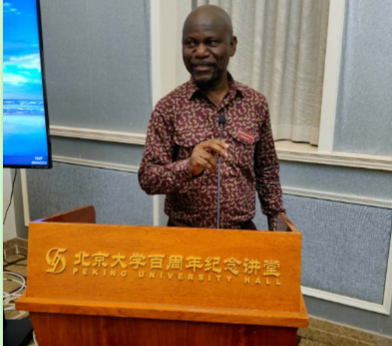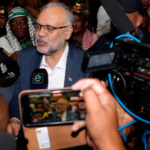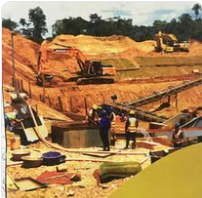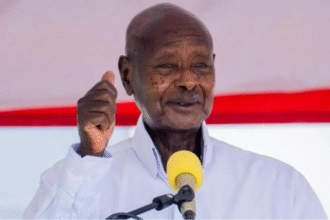Monrovia, Liberia – Jones N. Williams, a prominent Liberian figure, public philosopher and public policy professional, has ignited a national conversation by advocating for a significant shift in the country’s immigration policy. Williams is calling for the establishment of a formal system that allows for the issuance of permanent residency to foreigners, including individuals of White, Asian, and Arab descent.
Currently, the country’s immigration system primarily focuses on Africans and negroes for permanent residency and naturalization. Williams argues that this system is outdated and failing to adequately address the nation’s economic and societal needs.
“We are losing out on valuable talent and contributions by not offering a clear pathway to permanent residency for serious investors, skilled workers, entrepreneurs, and individuals who are committed to building their lives here,” Williams stated in a press conference held earlier today. “Limiting opportunities based on perceived origin is not only discriminatory but also detrimental to our long-term prosperity. We need to embrace a system that recognizes and rewards contributions, regardless of race or nationality.”
Williams argues, “Residency programs, particularly those involving investment, can boost economic development and create jobs by attracting foreign capital, stimulating investment in various sectors, and diversifying the economy, ultimately leading to infrastructure development and job creation.”
Many countries with citizenship and residency programs look to diversify their economies beyond traditional sectors. By attracting overseas investors and entrepreneurs, these countries can develop new industries and reduce their dependence on specific sectors, leading to more sustainable economic growth.
According to Williams, the immediate and long-term benefits of his proposal will be as follow:
- Attracting Foreign Investment:
Residency programs, especially those linked to investment like “manufacturing, agriculture-food production, healthcare, hospitality and tourism, real estate and infrastructural development, and technology,” will entice high-net-worth individuals and businesses to invest in the country, injecting capital into the economy.
- Stimulating Economic Activity:
The influx of capital will lead to increased investment in various sectors, including real estate, infrastructure, and other industries, creating opportunities for businesses to expand and hire more workers in Liberia.
- Diversifying the Economy:
By attracting foreign investment and entrepreneurs through the permanent residency program, Liberia will and can diversify its economies beyond traditional sectors, reducing dependence on specific industries and promoting more sustainable growth.
- Creating Jobs:
The expansion of businesses and infrastructure projects and investment in leisure and hospitality and tourism, spurred by foreign investment, will directly lead to the creation of new jobs in various sectors, from construction to service industries.
- Boosting Infrastructure:
These investment programs can and will provide crucial funding for infrastructure development, such as roads, ports, and utilities, which are essential for economic growth and job creation.
- Tax Revenue:
The substantial financial requirements associated with investment programs will often result in direct fiscal benefits for the country, as the income generated can be used to finance public services and infrastructure.
- Talent Acquisition:
Residency programs can and will attract skilled workers and entrepreneurs from other countries, who can contribute to the economic growth and innovation of Liberia.
- Regional Economic Development:
Such a residency program should be designed to attract investment and talent to specific regions or communities in the country, which can help to address regional disparities and promote more balanced economic development nationwide.
Williams’ proposal includes the establishment of specific criteria for eligibility for permanent residency, potentially encompassing factors such as education, professional skills, investment in the country, and background checks. The initiative aims to attract and retain individuals who can and will contribute to the economy, foster innovation, and enrich Liberia’s cultural landscape.

The call for reform has already sparked a range of reactions. Supporters argue that it would address labor shortages innovation, and unemployment in key sectors, attract foreign investment, and promote diversity. Critics, however, express concerns about potential impacts on local employment, strain on public resources, and the preservation of national identity.
The debate surrounding immigration has long been a contentious issue in the country. Whether Williams’ proposal will gain significant traction remains to be seen, but it has undoubtedly injected new energy into the discussion and forced a re-examination of the status quo. The coming weeks are likely to see further debate and discussion as lawmakers and the public grapple with the potential implications of such a sweeping reform.
This story will be updated as more information becomes available.









